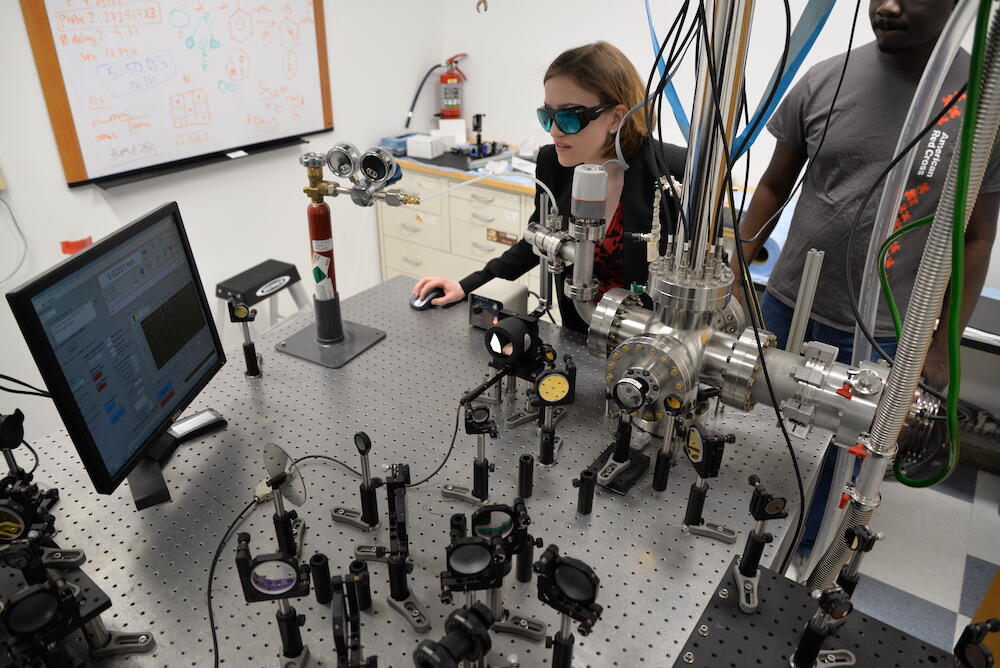
July 11, 2019
Professor receives U.S. government’s highest honor bestowed to early career scientists and engineers
Share this story
A Virginia Commonwealth University chemistry professor is a recipient of the Presidential Early Career Award for Scientists and Engineers, the highest honor bestowed by the U.S. government to outstanding scientists and engineers who are beginning their independent research careers and who show exceptional promise for leadership in science and technology.
Katharine Moore Tibbetts, Ph.D., an assistant professor in the Department of Chemistry in the College of Humanities and Sciences, is one of about 300 scientists and engineers across the country and one of 15 in Virginia to receive the award, which was announced by President Donald J. Trump.
“I’m incredibly honored to receive this prestigious award that puts me in the company of so many outstanding scientists,” Tibbetts said. “One exciting development is that many of the recipients have decided to use our newly granted platform to educate the public on the impact of scientific developments on their daily lives and to advocate for continued federal investment in scientific research that benefits society. I look forward to working with my colleagues on these efforts.”
Earlier this year, Tibbetts received two grants from the Department of Defense totaling nearly $1.4 million to study the initial steps of decomposition in “energetic molecules” that leads to explosions. She also received $60,000 from the Army Research Office in 2018 to conduct initial research.
The goal of Tibbett’s research is to understand the dissociation dynamics of energetic molecules, which are chemical compounds used in explosives and propellants that have large amounts of energy stored in their chemical bonds. The energy is released when the chemical bonds are broken during detonation of explosives and ignition of propellants. Her research aims to identify the processes leading to the first bond-breaking event that initiates detonation.
“The main reasons to study mechanisms of energetic molecule decomposition are to develop better methods for explosive detection and inform the design of new, better energetic molecules for particular applications,” Tibbetts said in March. “For instance, you might want to make a safer explosive by limiting unintended detonation, and a way to do this would be to have the energetic molecule making up the explosive able to initiate detonation only if it’s hit with a certain type of laser.”
Tibbett’s research could have applications to explosive detection and the design of novel energetic molecules with specified properties such as laser-initiated explosives.
Established in 1996, the Presidential Early Career Award for Scientists and Engineers acknowledges the contributions scientists and engineers have made to the advancement of science, technology, education and mathematics education and to community service as demonstrated through scientific leadership, public education and community outreach. The White House Office of Science and Technology Policy coordinates the award with participating departments and agencies.
Subscribe to VCU News
Subscribe to VCU News at newsletter.vcu.edu and receive a selection of stories, videos, photos, news clips and event listings in your inbox.







